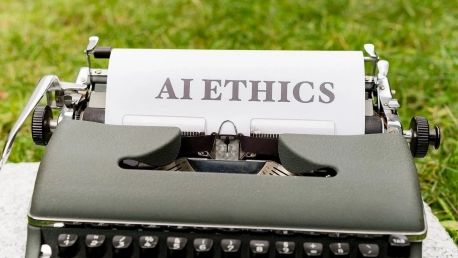Artificial intelligence (AI) has become a vital part of business, revolutionizing how companies operate and make decisions. Its role in spurring innovation is remarkable, but as AI becomes more integrated into systems, concerns about bias have surfaced. Biased AI can undermine fairness, as these automated systems could unintentionally reinforce societal prejudices, rather than promoting justice. Acknowledging this risk, there’s an urgent call for ethical AI practices to be adopted. Businesses must commit to developing AI that is not only intelligent but also equitable, ensuring that these technologies contribute positively to society, fostering fairness rather than feeding into pre-existing inequalities. By doing so, companies can build trust in AI applications and use them to enhance rather than detract from inclusivity.
The Perils of AI Bias and Systemic Discrimination
With great power comes great responsibility, and AI is no exception to this time-honored adage. As businesses increasingly deploy AI for critical operations, the mirror it holds up to society often reflects the biases embedded within its programming and datasets. In sectors such as recruitment and healthcare, for instance, discriminatory patterns have surfaced, spurred by AI’s reliance on historical data fraught with human prejudices. Left unchecked, these biases can institute a cycle of injustice, penalizing underrepresented groups and entrenching societal divides. Recognizing the ramifications of such biased decision-making is the stepping stone to safeguarding against a future where AI serves as the arbiter of inequality.
Advancing AI Ethics through Advisory Boards and Committees
In an era where AI is intricately woven into the fabric of business, the ethical deployment of these technologies is paramount. To safeguard ethics, companies are increasingly creating AI ethics boards and committees to direct the moral trajectory of AI applications from inception. These groups craft policies anchored in principles that emphasize equity and ethical integrity, ensuring that AI serves the greater good.Ethics committees are vital in maintaining a moral framework for AI as it progresses. They provide ongoing oversight and guidance, mitigating risks associated with AI adoption in business operations. Their role is crucial in navigating the complex ethical landscape of AI, continually adjusting the moral rudder to preempt ethical quandaries, thereby embedding ethics at the core of AI endeavors. This preemptive action secures a trustworthy and principled integration of AI into corporate practices, reflecting the organization’s commitment to ethical responsibility.
Championing Transparency with an AI Ethical Advisor
One of the cornerstones of ethical AI is transparency — a quality that can be significantly amplified by appointing a dedicated AI ethical advisor. This role is designed to thread the needle of ethics throughout each stage of AI development, ensuring that considerations of potential biases are not an afterthought but a key component of the design process. An AI ethical advisor not only scrutinizes the ethical implications of deployed systems but also serves as a bridge of trust to the public, communicating a dedication to ethical standards and accountability in AI operations. Such advocacy for transparency is vital to sustain public confidence in AI technologies and to preemptively address ethical dilemmas that may arise.
Essential Training for Ethical AI Utilization
Organizations committed to responsible AI development prioritize the establishment of training programs aimed at enhancing their team’s comprehension of AI’s ethical complexities. Such initiatives not only focus on the principles underpinning AI but also delve into identifying and counteracting biases. This educational investment is integral in enabling employees to navigate ethical conundrums associated with AI applications thoughtfully. Moreover, by embarking on this path, companies elevate their workforce’s proficiency in preempting potential ethical pitfalls and contribute to nurturing a corporate culture where ethical considerations are consistently woven into the fabric of AI deployment and usage. As a consequence, businesses not only safeguard against ethical transgressions but also encourage continuous dialogue around AI ethics, ensuring that these conversations evolve as the technology itself progresses.
Keeping Pace with Evolving AI Regulations
Navigating the evolving AI regulatory framework is crucial. With new policies like the EU’s AI Act, businesses must actively inform themselves to stay compliant and competitive. Adhering to regulations is strategic, signaling a commitment to legal and ethical AI use, which is increasingly valued in the market.Incorporating ethical principles into AI systems is not just about compliance; it’s also about gaining trust and leadership in the industry. By prioritizing fairness, transparency, and accountability, companies go beyond legal requirements and align with societal values. This approach mitigates risks and ensures long-term success and acceptance of AI technologies. Maintaining ethical AI practices is both a moral obligation and a smart business strategy that will pay dividends in the market and society.









